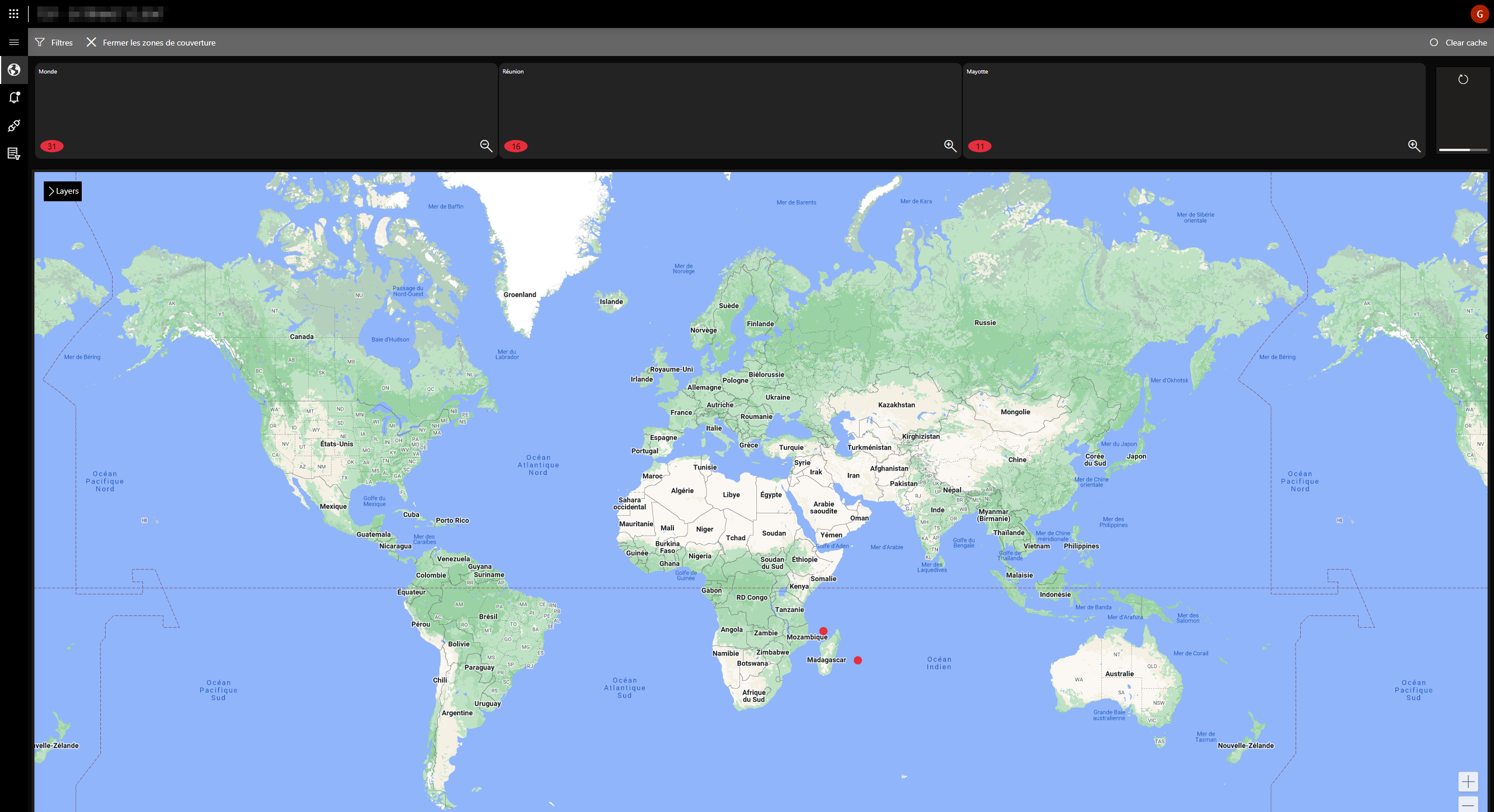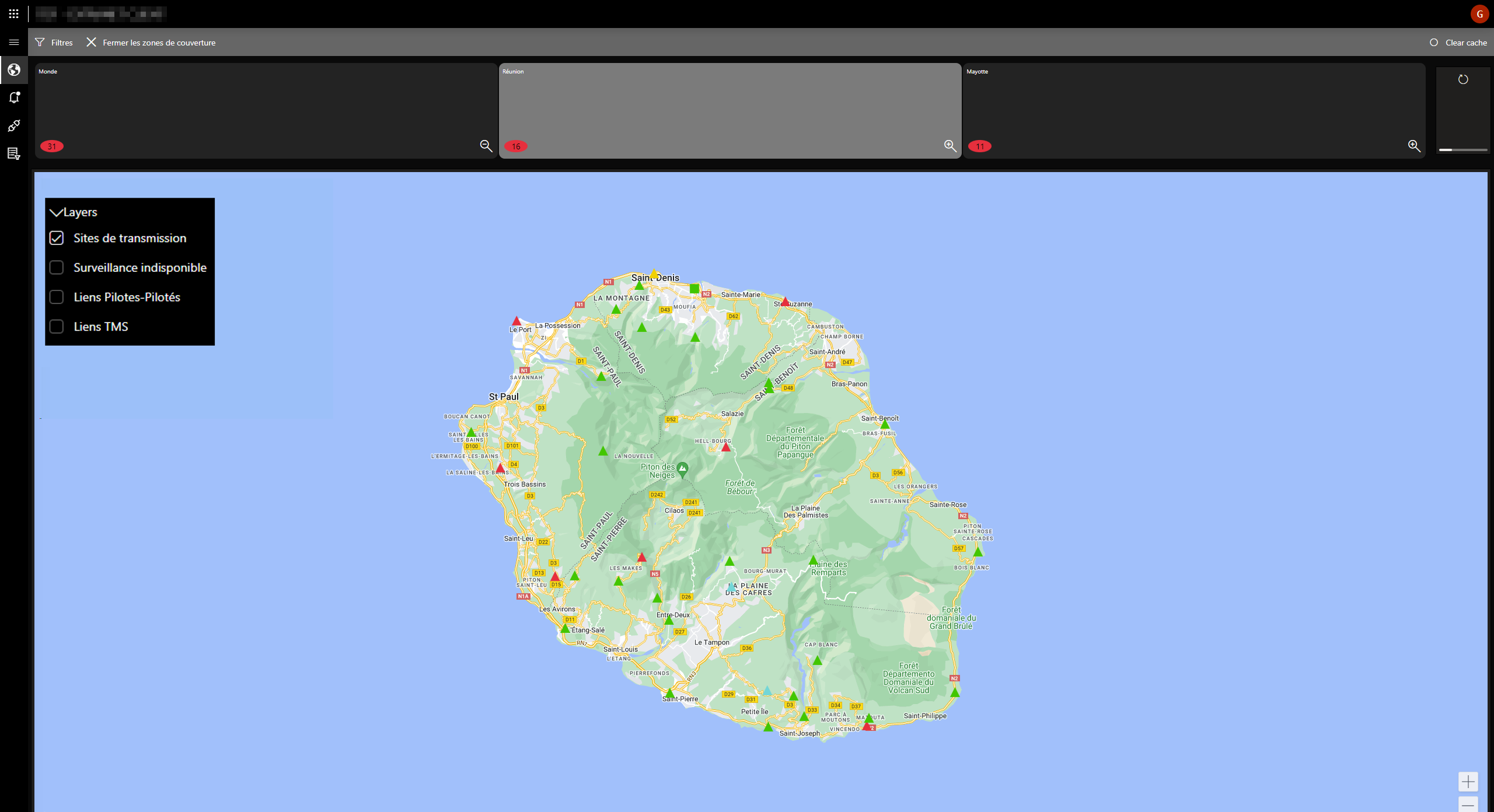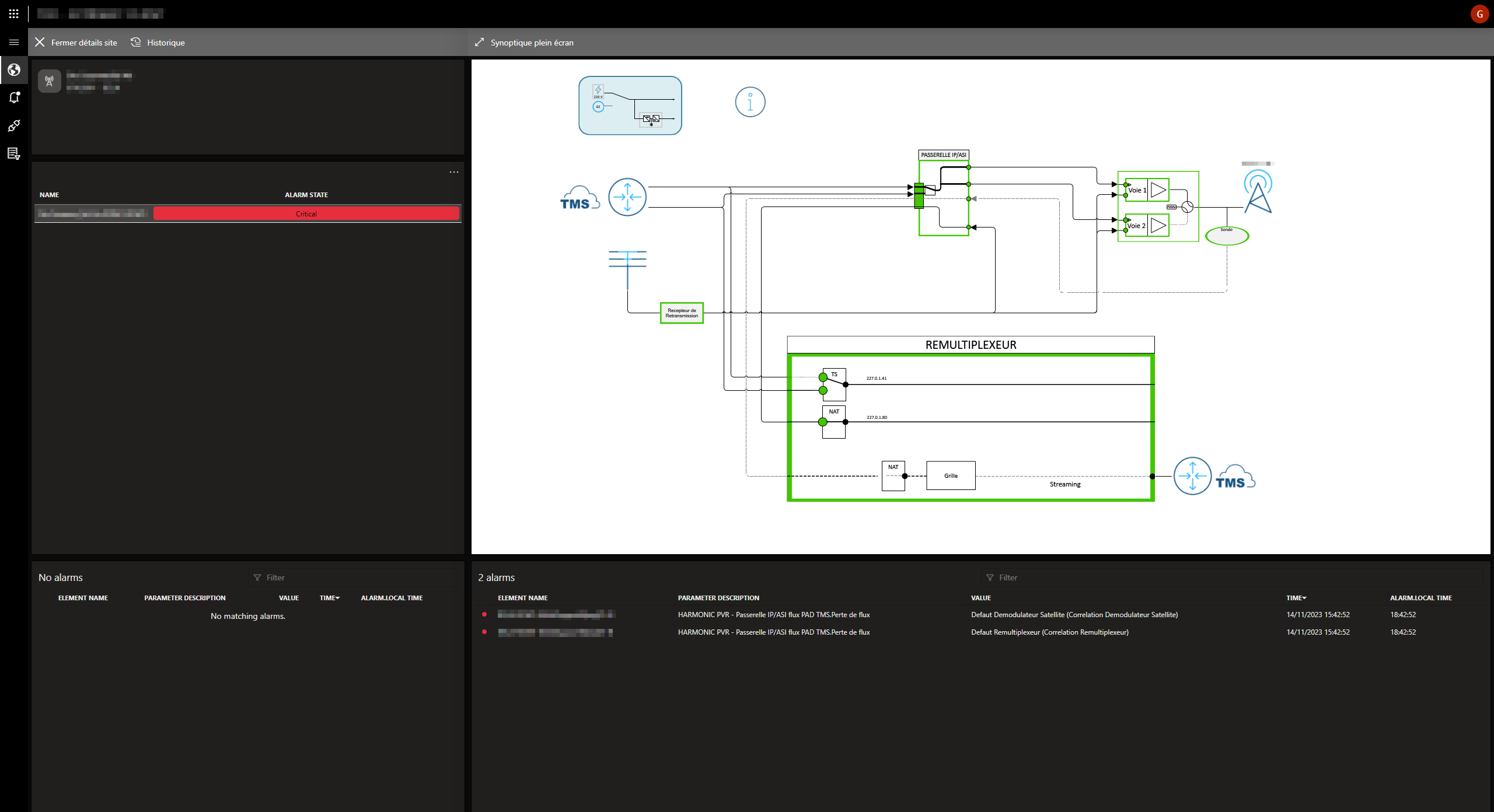solution Use Case
Customer Extranet

As more networks and resources are delivered “as a service,” there is an increasing demand for platforms that enable resource suppliers to provide their tenants with adequate visibility regarding the availability and status of these services. This includes services such as terrestrial transmission networks, private mobile networks, and data center-based resources.
A platform like DataMiner is an ideal solution. It not only manages these resources but also offers additional features like real-time data sharing between the service provider and its tenants. This is demonstrated in this use case, involving an infrastructure and network operator working with a public broadcaster. The broadcaster relies on the operator to distribute its digital terrestrial services across various service areas, including overseas territories.
In this scenario, the broadcaster requested 24/7 access to an extranet that provides a digital twin of the contracted infrastructure and services. This includes the ability to take action in specific situations, such as when transmitter instances fail. To meet this demand, the operator chose to implement a tailored low-code app rather than using shared dashboards via dataminer.services.
The low-code app gave the broadcaster exactly the visibility into the state of the infrastructure and terrestrial services they needed. With the app’s user-friendly design, the broadcaster could easily navigate between territories, check service availability, or identify the root cause of an outage with just a few clicks.
This was all achieved within a fully controlled environment, with access strictly limited to authorized users and data. This ensured that the broadcaster could view the necessary information without directly accessing the infrastructure itself.
Management was also simplified, with the ability to easily edit access lists, and extend, shorten, or terminate data sharing at any time.
Moreover, this type of data-sharing solution is useful not only in the XaaS sector. Infrastructure owners and operators can also benefit from similar low-code apps or shared dashboards to facilitate data exchange, making it easier to collaborate with partners involved in infrastructure management and exploitation.
Let’s take a closer look at the low-code app:
USE CASE DETAILS
 The territory overview is designed to give the customer a quick insight into the situation across different regions. Color coding is used to reflect the status for each region.
The territory overview is designed to give the customer a quick insight into the situation across different regions. Color coding is used to reflect the status for each region.Access to a specific territory is made easy through tiles at the top of the screen, directly above the map.
Additionally, although not shown in this screenshot, there is an option to open a site overview list, which can be used to navigate directly to a specific site from there.
There is also a feature that uses a crawler to inform the customer about specific ongoing activities that might interfere with the service.
 When the operator selects a specific territory, the map view zooms in on that area and presents an overview of the situation there.
When the operator selects a specific territory, the map view zooms in on that area and presents an overview of the situation there.While the screenshot only displays transmitter sites and their status, there is also the option to turn on additional layers of information or open site details by clicking on a dialog box that appears when hovering over these sites.
 The site details, as requested by the customer, include site status, resource and service alarm lists, as well as a synoptic overview of the resource inventory, state, and interconnections.
The site details, as requested by the customer, include site status, resource and service alarm lists, as well as a synoptic overview of the resource inventory, state, and interconnections.